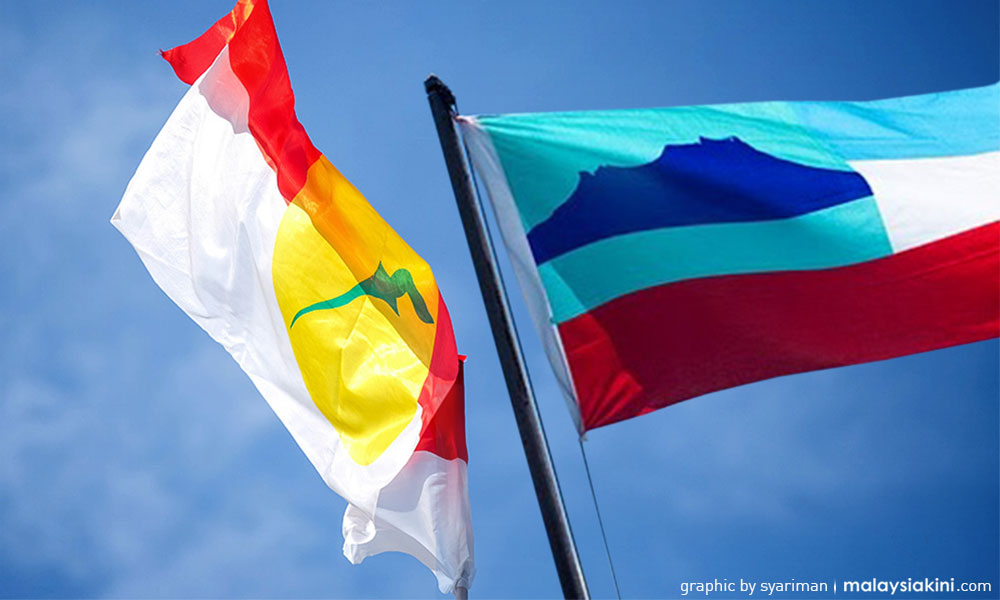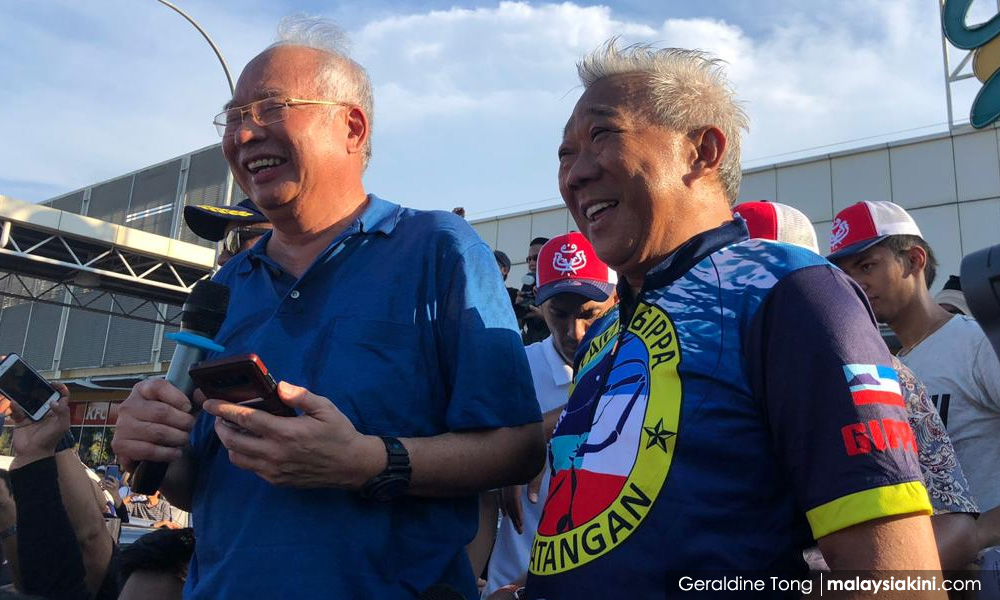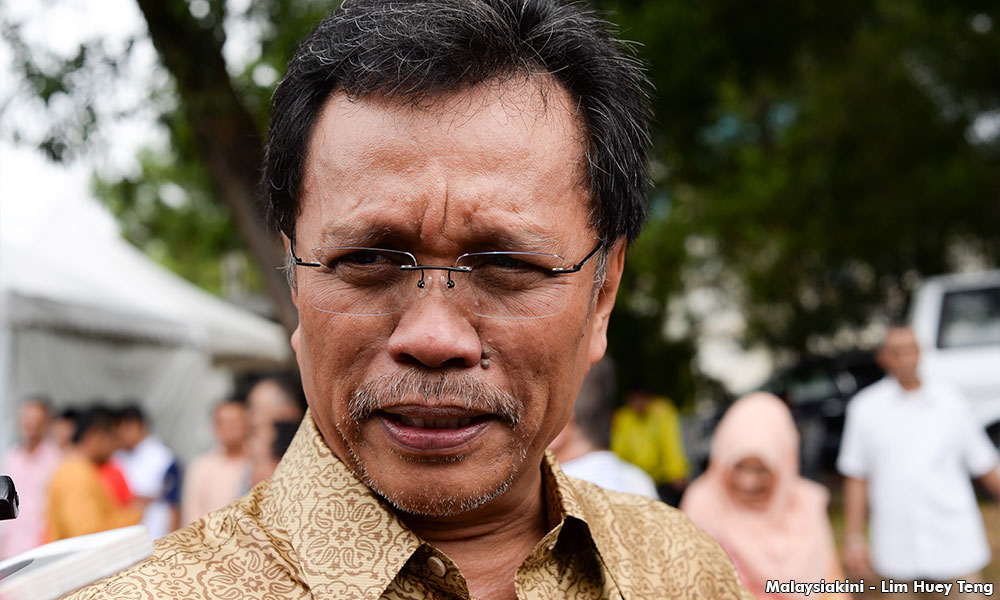
In the run-up to the Sandakan by-election, much attention was placed on Sabah Umno chief Bung Moktar Radin's promise to mobilise 9,700 Umno members to vote.
Given that Umno has been recovering some ground in Peninsular Malaysia of late, Bung Moktar's pledge was not taken lightly, which was evident in Pakatan Harapan and their ally Warisan's heavy campaigning in Muslim neighbourhoods.
Muslims make up the second largest demographic in Sandakan, after the 51 percent of Chinese voters.
Though Election Commission data does not classify voters according to religion, estimates by campaign workers suggest that Muslims make up 40 to 44 percent of the electorate.
Since DAP candidate Vivian Wong received 74 percent of the vote on May 11, and the fact the turnout rate at the voting district level was mostly uniform – close to the overall rate of 54.44 percent – the logical conclusion is that a sizeable number of Muslims voted for Wong.
It should also be noted that two Muslim-majority voting districts won by BN during the last general election – Sim-Sim and Pulau Berhala – have turned in favour of Harapan.

Ultimately, the result of the Sandakan polls suggests that Umno's grip over Sabahan Muslims – their core demographic – has weakened.
No longer 'fixed deposit'
Since 1994, Umno has dominated Sabah politics. In every election up until 2013, Sabah Umno candidates had a nearly 100 percent win rate, with their lawmakers making up half the state legislative assembly.
Umno leaders often regarded Sabah as their fixed deposit", alluding to how the state was seen as a reliable support base.
All that changed in last year's general election. A resurgent Sabah opposition, led by the charismatic Warisan president Mohd Shafie Apdal, reduced Umno's seats in the state assembly to 17 from 32.
As for parliamentary seats, some of Sabah Umno's most prominent personalities, such as Salleh Said Keruak, Abdul Rahman Dahlan and Rosnah Shirlin, were vanquished by political novices.
In the months that followed, lawmakers began to desert Sabah Umno, which is now left with Bung Moktar as its solitary MP, and Musa Aman as its sole assemblyperson.
The Sandakan by-election eventually became Sabah Umno's first test.
Although not officially in alliance with Parti Bersatu Sabah, which fielded its vice-president Linda Tsen for the polls, Sabah Umno campaigned against Harapan/DAP in Muslim areas, albeit only during the second half of the campaign.
Even acting Umno president Mohamad Hasan and former Umno president Najib Abdul Razak were flown in just before polling day.
Autonomy key?
The appearance of Umno's top personalities on the campaign trail came as little surprise, given how important the state has been to the party.

Since the state chapter of Umno was established in the 1990s, Sabah has contributed a disproportionate number of MPs to the party.
Although just one of Umno's 13 state/territory chapters, it contributed 12 to 17 percent of the party's lawmakers until 2018.
Unless Umno is able to shape up its Sabah chapter within the next four years, the party will face difficulty in securing the numbers needed for it to get back into power.
Prominent Sabah watchers, when contacted, generally believe that the Muslim vote swing in Sandakan can be attributed to satisfaction over the Warisan-led government in Sabah and Shafie's leadership.
They also hold that Umno's decision to grant its Sabah chapter autonomy – the ability to make policy decisions without having to consult the party headquarters in Kuala Lumpur – could be the key to its revival.
Sabah Universiti Teknologi Mara lecturer Mohammed Raheezal Shah Abdul Karim said that if this autonomy means relaxing the rules for Sabah Umno division leadership elections, and more say for delegates from the state, it could make the party more appealing.
"If Umno can show that it is granting more autonomy than the other political parties, it will attract people to join Umno," he said.
Shafie the one to beat
Umno's headquarters decided in February to grant its Sabah chapter more power in the running of its own affairs.
One of the most important aspects of this is in the selection of candidates – hitherto left to the party president, opening up allegations of cronyism and warlordism.
However, the exact details on other duties passed on to Sabah Umno are still unknown at this point.

Autonomy, although much talked about, may not necessarily be Sabah Umno's magic pill, as Shafie still stands in Umno's way.
Universiti Malaysia Sabah social science lecturer Lee Kuok Tiung said that in the case of Sandakan, voters were primarily concerned about bread-and-butter issues, which are less appealing than Umno's usual arsenal of race and religion rhetoric.
Lee also pointed out that a good portion of voters are also inclined to back the government of the day, meaning that Harapan and Warisan can count on the advantage of incumbency.
Universiti Malaysia Sarawak linguist and frequent political commentator Jeneri Amir believes that Sabah Umno's biggest obstacle is their former colleague Shafie.
Jeneri said that many of Sabah Umno's former supporters now see Shafie, who was with Umno from 1994 to 2017, as a credible Muslim leader capable of delivering change. - Mkini



No comments:
Post a Comment
Note: Only a member of this blog may post a comment.